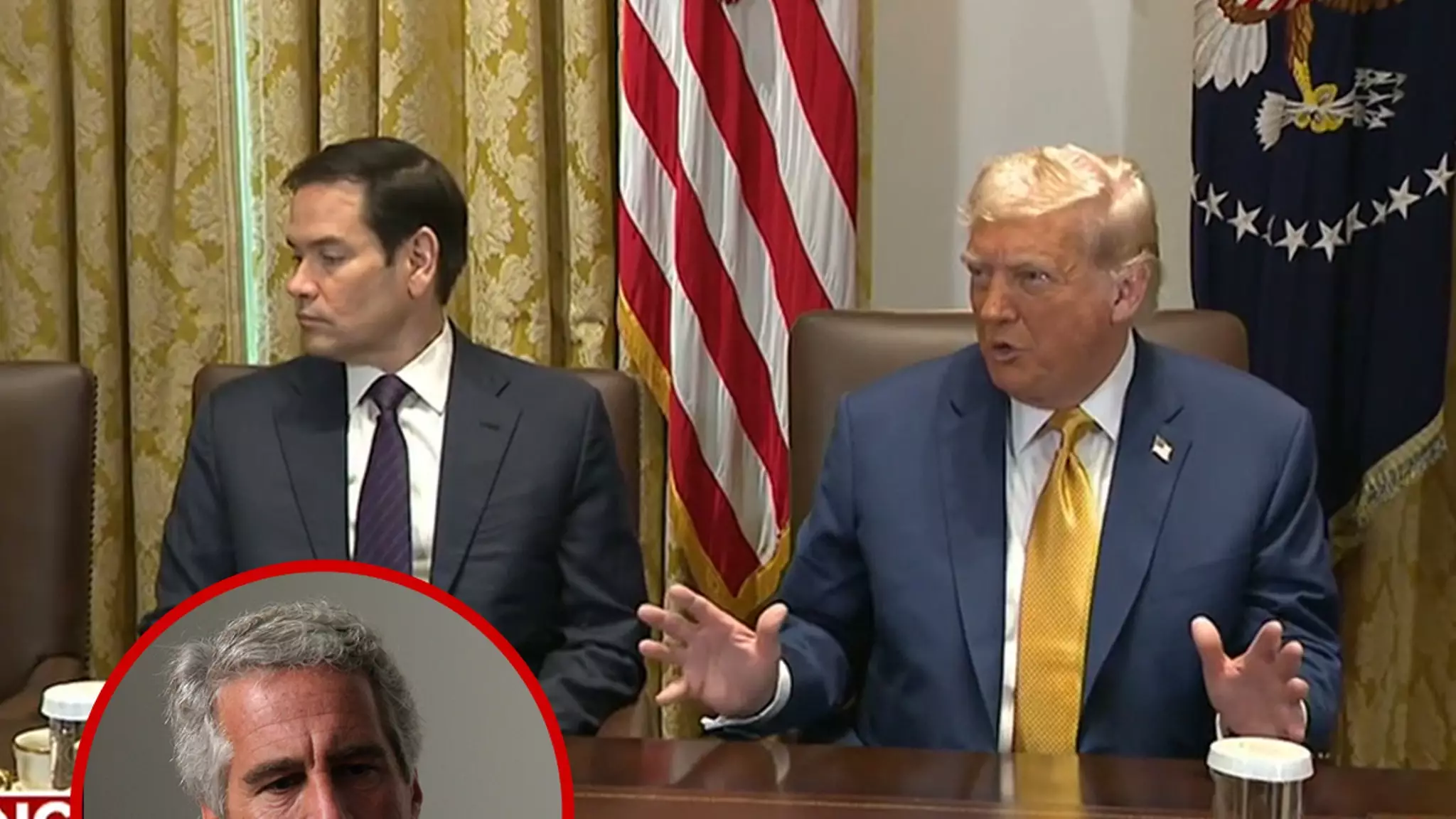In recent days, the Jeffrey Epstein saga has morphed from a sordid scandal into a political battleground, highlighting how government officials manipulate information to shape public perception. The Department of Justice’s assertion that Epstein left no “client list” contradicts earlier hints from figures like U.S. Attorney General Pam Bondi, who seemingly alluded to documents hinting at powerful individuals’ involvement. This inconsistency reveals a deliberate effort to obscure uncomfortable truths, reinforcing the idea that government communications often serve their own strategic interests rather than the pursuit of transparency or justice. The layered rhetoric, exemplified by White House Press Secretary Karoline Leavitt’s vague clarification, emphasizes how official statements are carefully curated to mitigate backlash rather than to inform.
This orchestrated dance around Epstein’s connections exposes a broader tendency within political institutions to prioritize reputational protection over accountability. The public is left deciphering fragmented messages, fueling suspicion and conspiracy theories instead of trust in the justice system. By dismissing questions about a “client list,” authorities effectively deny the possibility that Epstein’s network extended into the highest echelons of society, thus preserving a veneer of legitimacy amid scandal.
The Media’s Role in Shaping Public Perception
The media’s portrayal of Epstein’s case demonstrates its own complicity in this game of concealment. Press briefings that dismiss or sideline questions about potential clandestine documents contribute to a narrative that values control over clarity. The recent release of documents, which largely contained publicly available information, further exemplifies this pattern. Instead of providing groundbreaking revelations, these disclosures serve to alleviate public pressure temporarily, all the while leaving the most pressing questions unaddressed.
The incident underscores how information release becomes a tactical move rather than a genuine effort toward disclosure. The media’s critical role should be to challenge these manipulative tactics, but often it inadvertently sustains them by relaying official narratives uncritically. Public outrage over minimal disclosures reveals a collective hunger for truth, yet the institutions involved seem set on delivering half-truths that prevent genuine accountability from emerging.
The Implication of Power and Justice in American Society
At the core of the Epstein case lies an uncomfortable truth about the intertwining of wealth, influence, and impunity. Epstein’s connections to influential figures and the absence of a concrete “client list” suggest a system that protects its own, regardless of moral or legal standards. The repeated denial of such a list not only impedes justice but raises questions about the integrity of investigations into powerful elites.
Furthermore, the narrative spun by officials, including the dismissal of Epstein’s involvement in criminal activities, fuels a dangerous illusion: that the rich and privileged are above the law. Epstein’s death, officially ruled a suicide but riddled with conspiracy theories, becomes emblematic of this systemic failure. It signifies how the truth is often sacrificed at the altar of political expediency, leaving the public with doubts and a sense of betrayal.
The tacit message from authorities appears to be that protecting the reputation of the establishment outweighs uncovering full accountability. This approach discourages genuine efforts to confront systemic corruption and fosters cynicism among citizens who feel their pursuit of justice is futile. The Epstein case, thus, encapsulates the pervasive challenge in America’s justice system: balancing the veneer of transparency against the realities of entrenched power.

